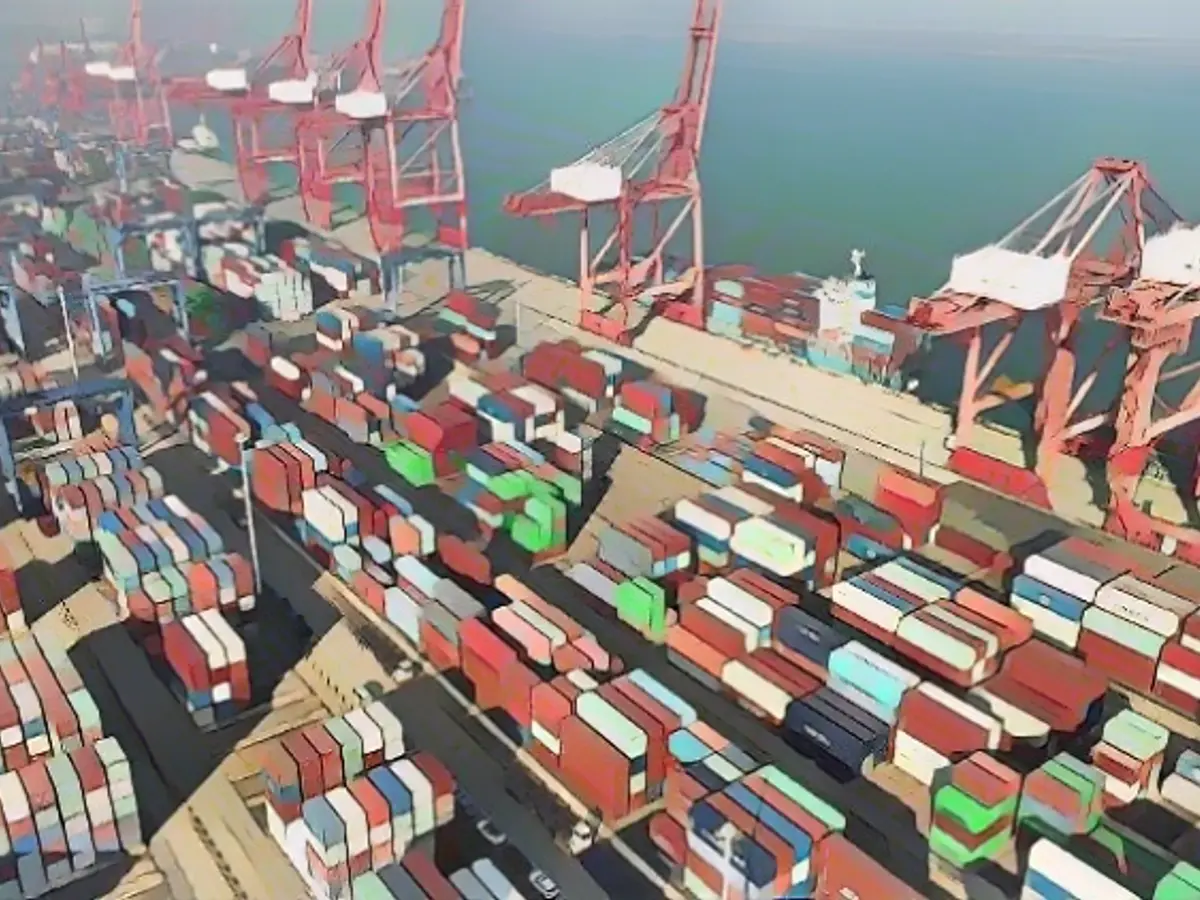Cutting ties with China would deal a substantial blow to Germany's economy, finds a study. A sharp halt to trade with the People's Republic could cause Germany's economy to plummet by approximately 5%, as per the calculations released by Kiel Institute on Thursday. Moritz Schularick, President of the Kiel Institute for the World Economy (IfW Kiel), asserts, "Trade with China brings us prosperity and is almost impossible to replace in the short term." However, Germany's robust economy can endure this extreme circumstance, making the shock comparable to that faced during the financial crisis or the COVID-19 pandemic.
The research suggests that, in the long run, the losses would average around 1.5% per year. To steer clear of steep initial costs, a gradual, thoughtful reduction in commercial relations is advisable. The significant expenses stem from the prompt consequences of an abrupt trade halt, as Germany is unable to replace its existing ties with China rapidly. China's President Xi Jinping has warned Europe not to view China as a competitor and avoid confrontational actions. During a recent summit with EU leaders in Beijing, including Commission President Ursula von der Leyen, Xi reiterated his desire to collaborate more closely with the EU on economic matters.
However, critical issues persist, such as the unfair competition distortions on the Chinese market and Beijing's threats against Taiwan. The EU cannot tolerate such practices, emphasizing Von der Leyen.
Enrichment Data:
The study highlights the following short-term and long-term economic implications:
Short-term Challenges
- Immediate Struggles for Companies: Decoupling would bring immediate challenges for German companies, particularly in industries like mechanical engineering and automotive manufacturing. These entities may find it difficult to cater to Chinese demand due to the existing technological gap[2].
- Trade Disruptions: A sudden cut in trade with China could disrupt supply chains, resulting in temporary economic instability. Various sectors relying heavily on Chinese components or manufacturing processes may experience disruptions[3].
- Loss of Price Competitiveness: German firms might lose their price competitiveness in foreign markets following the higher costs incurred during supply chain diversification. This could lead to reduced exports and income[2].
Long-term Consequences
- Technological Deficit: The long-term impact of decoupling would exacerbate the technological deficit in key industries. German companies have been surpassed by both the US and China, notably in the electric vehicle market. Overcoming this deficit requires substantial investment in research and development[2].
- Diversification Efforts: To reduce dependence on China, Germany needs to foster diversified trading relationships through trade and investment agreements with other nations or regional blocs. This move would minimize critical reliance on China, bolstering economic resilience[2].
- Enhanced Innovation: The long-term strategy for Germany should focus on elevating innovation in modern key technologies. Collaborations with other European countries and potentially the US could help bridge the technological gap, ensuring continued competitiveness[2].
- Eliminating Unfair Subsidies: Reducing unfair subsidies and maintaining a more level playing field for European companies on the Chinese market could improve German companies' competitiveness. This could be achieved by negotiating agreements with China that commit to minimizing subsidies and ensuring fair trade practices[2].
In conclusion, while decoupling from China presents immediate difficulties, the long-term strategy for Germany should focus on promoting diversified trading relationships, advancing innovation, and mitigating the technological deficit to preserve economic competitiveness.





